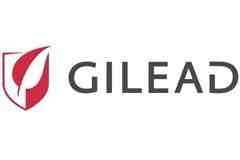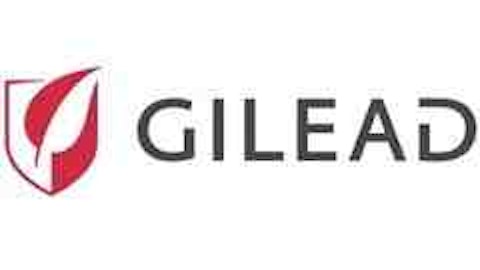Stop me if you’ve heard this joke before: “Two political parties walk into a bar; both point the finger at each other for the country’s fiscal mess, yet neither is willing to budge an inch from their underlying views…” My guess is you’ve heard this one all too often and it’s not even funny anymore… because the truth rarely is.

Today, I want to take a closer look at how sequestration could impact the health care sector.
As you might imagine, many of the effects of removing government funding tend to be negative — but it’s not as cut-and-dried as it might appear on the surface.
How it’ll affect safety
The most immediate impact of sequestration appears to be whether patient and consumer safety will be affected negatively. On the surface I’d say this is a distinct possibility with the Centers for Disease Control and Prevention seeing nearly a $450 million cut in its budget and the FDA, whose expenses are predominantly tied to its personnel costs, alluding that a $318 million reduction in funds will result in layoffs or furloughs totaling 2,100 USDA food inspectors.
Food safety looks like a clear loser with Tyson Foods, Inc. (NYSE:TSN) and Smithfield Foods, Inc. (NYSE:SFD) projected to suffer from USDA furloughs. By law, processed meat cannot be sold in stores without having been inspected, leaving Tyson and Smithfield in a big bind come the summer time when these furloughs are expected to hit the hardest. The end result may be less meat on supermarket shelves and higher prices because of it.
The bigger concern here actually stems from the CDC’s reduced budget. As GlobalData analysts noted this past week, one of the CDC’s primary functions is to provide educational and preventative materials and products to curb the spread of infectious diseases such as hepatitis and HIV. A lack of funding here could result in higher occurrences of these infectious diseases. However, I disagree with their analysis that this negative occurrence could have the hidden benefit of driving down costs as providers opt for cheaper drugs in the HIV space, hurting the launch of expensive new offerings like. Gilead Sciences, Inc. (NASDAQ:GILD)‘s four-in-one HIV medication, Stribild. Made with all in-house compounds, if Stribild supplants Gilead Sciences, Inc. (NASDAQ:GILD)’s current best-selling HIV treatment, Atripla, it will result in higher margins for the company. Keeping things in perspective, I wouldn’t expect a huge spike in HIV occurrences, but I wouldn’t be surprised if documented cases rose year-over-year.
How it’ll affect research and development
Research and development in pharmaceuticals, biotech, and life sciences looks like it’ll be a bit of a mixed bag. The National Institutes of Health is expected to be dealt a big blow with a reduction in funding of more than $1.6 billion. That means somewhere in the neighborhood of 2,000 fewer grants will be issued. In addition, a reduction in FDA budgets, while being dealt with largely on the food inspection front, could translate to slower drug and device approval. That would be bad news for potential drugs that aren’t set to be examined by the FDA until the latter half of 2013, including GlaxoSmithKline plc (ADR) (NYSE:GSK) and Theravance Inc (NASDAQ:THRX)‘s revolutionary long-term COPD treatment, Anoro, which I declared as a game-changing drug hopeful late last year.
On the other hand, a reduction in grants from the NIH could spur consolidation in a very thin biotechnology and life sciences sector which I’d view as a positive. Life Technologies Corp. (NASDAQ:LIFE), for instance, announced in January that it was conducting its annual strategic review, implying to investors that a sale of the company was being pondered. Although a sale may not come to fruition with bidder Thermo Fisher Scientific Inc. (NYSE:TMO) no longer in the running after Life Technologies Corp. (NASDAQ:LIFE)’s huge run-up in price, consolidation could become increasingly common as grant funds decrease.
Will the sequester affect your bottom line?
The primary question most people have is how sequestration could affect their personal care. Ultimately, it shouldn’t result in any immediate out-of-pocket costs — but that doesn’t mean you’re out of the woods, either.
Most social programs — including Social Security, Medicaid, and unemployment benefits — are exempt from the budget cuts. Even Medicare beneficiaries were spared the reduction, with lawmakers instead voting to cut 2% out of the budgets of those reimbursed by Medicare. This means that health-benefits companies and hospitals could feel a bit of a pinch. Humana Inc (NYSE:HUM) is a perfect example of a company expected to suffer from the implementation of the sequester. Humana’s Medicare Advantage business currently accounts for 63.5% of total sales. With reimbursements expected to be down 2%, it’s going to be extremely difficult for Humana to grow its top-line numbers. That would be all the more reason to expect Medicare-reliant health-benefits providers to do whatever they can to boost premiums.
The article How Sequestration Will Affect the Health-Care Sector and Your Pocketbook originally appeared on Fool.com and is written by Sean Williams.
Fool contributor Sean Williams has no material interest in any companies mentioned in this article. You can follow him on CAPS under the screen name TMFUltraLong, track every pick he makes under the screen name TrackUltraLong, and check him out on Twitter, where he goes by the handle @TMFUltraLong.Motley Fool newsletter services have recommended buying shares of Gilead Sciences and Thermo Fisher Scientific.
Copyright © 1995 – 2013 The Motley Fool, LLC. All rights reserved. The Motley Fool has a disclosure policy.




